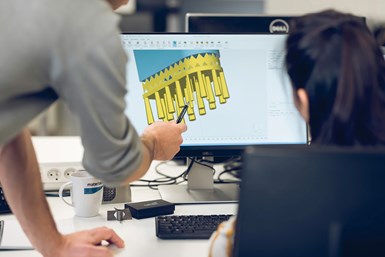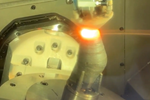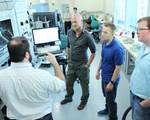Materialise CO-AM Software for Serial Additive Manufacturing Production
The open platform is said to give manufacturers cloud-based access to a full range of software tools that enable them to plan, manage and optimize every stage of their additive manufacturing operations.
Share

Photo Credit: Materialise
Materialise’s CO-AM is an open software platform designed to more efficiently manage the additive manufacturing (AM) production process. CO-AM is said to give manufacturers cloud-based access to a full range of software tools enabling them to plan, manage and optimize every stage of their AM operations.
With CO-AM, the company aims to address the untapped potential for using AM for serial manufacturing and mass personalization. The company says the software builds on more than three decades of 3D printing experience, offering cloud-based access to its entire software suite.
In addition, the open architecture of the platform is said to enables users to integrate all of their preferred tools, giving them access to the latest software innovations and allowing them to scale their operations based on their current needs. At the same time, CO-AM is said to provide seamless access to production data, enabling manufacturers to continuously monitor and improve their AM workflows.
By connecting this data, it is said to enable manufacturers to achieve the consistent and repeatable quality standards that are needed to mass produce identical or customized products. The open platform can also enable the AM community to co-develop solutions that could create competitive advantages for individual companies and empower entire industries, the company says. It is said this business model could also help generate new revenue streams for hardware and software partners.
At the heart of the CO-AM platform is a data lake that connects to all production tools and keeps track of what is happening on the production floor. The ability to monitor and analyze production data can enable operators to define and store their own unique workflows in a knowledge database, empowering them to continuously improve the production process. The company says this creates an AI-powered learning platform where every printed part has the potential to be better than the previous one.
To successfully scale AM operations, it is said manufacturers require an open ecosystem that connects to a wide range of technologies and integrates with existing production infrastructures. The platform’s open software architecture gives companies direct access to multiple hardware technologies and their preferred tools from Materialise and other software developers, supporting them along every step of their AM journey – from planning and printing to quality control.
Materialise plans to offer more than 25 software applications on its platform, including a seamless integration with Magics; AM Watch for shopfloor data collection; and its Build Processors for connectivity with more than 150 different 3D printing systems. The company will also open the platform to independent software vendors and has already onboarded several third party applications, including AM-Flow and Castor.
Related Content
-
Aluminum Gets Its Own Additive Manufacturing Process
Alloy Enterprises’ selective diffusion bonding process is specifically designed for high throughput production of aluminum parts, enabling additive manufacturing to compete with casting.
-
New Electric Dirt Bike Is Designed for Molding, but Produced Through 3D Printing (Includes Video)
Cobra Moto’s new all-electric youth motocross bike could not wait for mold tooling. Parts have been designed so they can be molded eventually, but to get the bike to market, the production method now is additive manufacturing.
-
Casting With Complexity: How Casting Plus 3D Printing Combine the Strengths of Both
Aristo Cast is advancing a mode of part production in which casting makes the part, but 3D printing enables the geometry.











